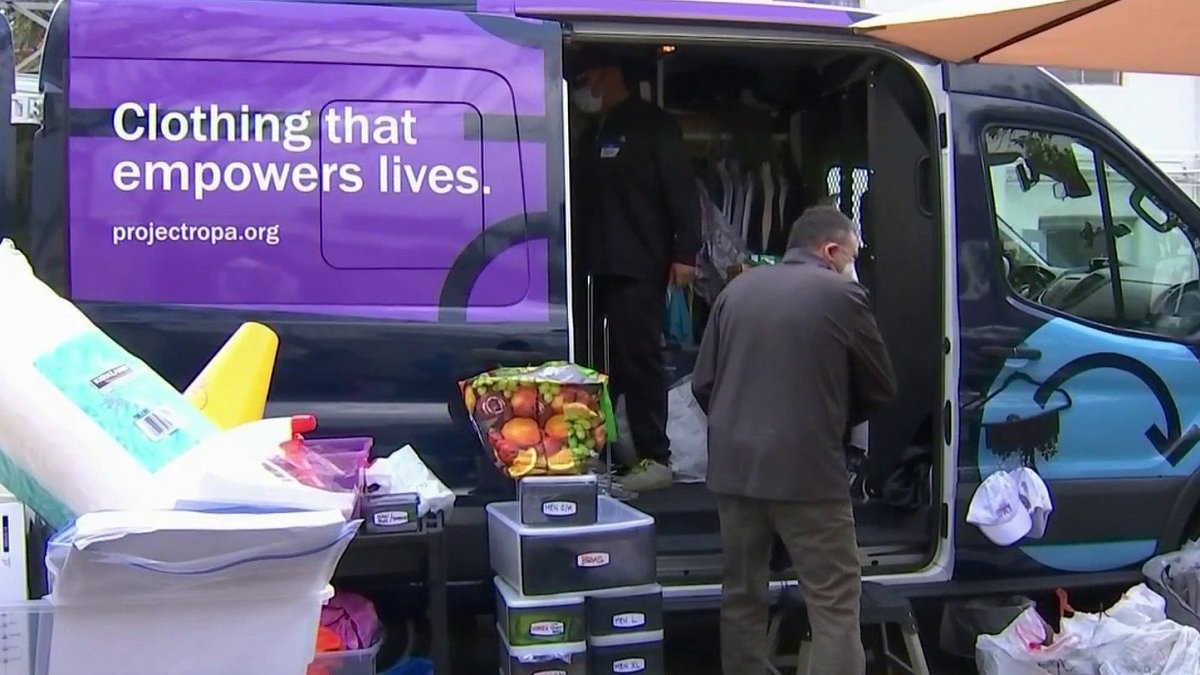
The vehicle stations in a corner, propping open its doors and revealing a hidden closet. Racks of clothing items, shoes, socks and hygiene kits are only a few commodities that homeless individuals seldom enjoy. Project Ropa is a nonprofit organization looking to change that.
Founded in 2016 by Caitlin Adler, Project Ropa has been collaborating with about 25 local organizations and corporations to remove the first barrier to proper hygiene.
“Providing clean clothes may not seem important, but it is,” Adler said. Adler explained that the chances of getting or maintaining a job or housing are increased with a clean appearance. Hence, Project Ropa is working with corporations and retailers to make use of typically discarded items.

“We have designer pieces that have minimal defects, not readily obvious to the eye. That’s how we make our approach more sustainable,” Adler says.
Textile waste has been a rising concern in recent years. The EPA noted that textile waste in landfills rose from 1,710 to 11,300 from 1960 to 2018. Among the items identified were clothing and footwear. For that reason, Project Ropa stations its mobile clothing closet in densely populated areas in Los Angeles. Their most popular sites are Hollywood and Echo Park.
Homelessness has been a prominent issue in Hollywood, but especially Echo Park. In 2022, UCLA researchers found there to be 183 unhoused individuals living in Echo Park.
The report found that only 17 people were confirmed to be living in some form of long-term housing after the city of Los Angeles issued an encampment clean-up in March 2021. The report found “the encampment had many Black, Indigenous, and immigrant residents and was a refuge for people fleeing gendered violence.”
According to the Census Reporter, there are about 188,110 people living in the areas of East Central/Silver Lake, Echo Park and Westlake as of 2022. Hispanics make up the majority of the population at 52%, followed by 22% of Whites and 17% of Asians. The analysis of Echo Park reveals racial and economic disparities, which often obstruct the ability to seek resources.

“Being mobile helps us reach people, not the other way around. I noticed that was a common problem with many places,” Adler says.
Public transportation is closely linked to the quality of life. For unsheltered people, accessing public transportation is a conflict issue. Hence, Project Ropa operates under a set schedule in areas with dense homeless populations and RV camps.
“We like to be an all-in-one operation,” Adler explained. Warm meals, ID replacement services, haircuts and showers are often paired with the clothing closet. Throughout December, Project Ropa will be stationed near local churches.
“We like to be on private property to avoid obstruction from the city,” Adler said. Project Ropa is looking to bundle up LA’s homeless population with coats, jackets, hats, earmuffs, socks and gloves.

“The holidays are particularly hard for homeless people and there is a gap in resources,” Adler said. Project Ropa is accepting donations and volunteer help in any of its operating sites or its warehouse in Gardena, where most of its operation takes place.
The pop-up sites will take place in the following locations:
- Echo Park Methodist Church on Dec. 19, 2023, from 9 a.m. to 12 p.m.
- Blessed Sacrament Church on Dec. 22, 2023, from 12 p.m. to 2 p.m.
- Echo Park Methodist Church on Dec. 26, 2023, from 9 a.m. to 12 p.m.
To donate, go to Project Ropa’s official website.